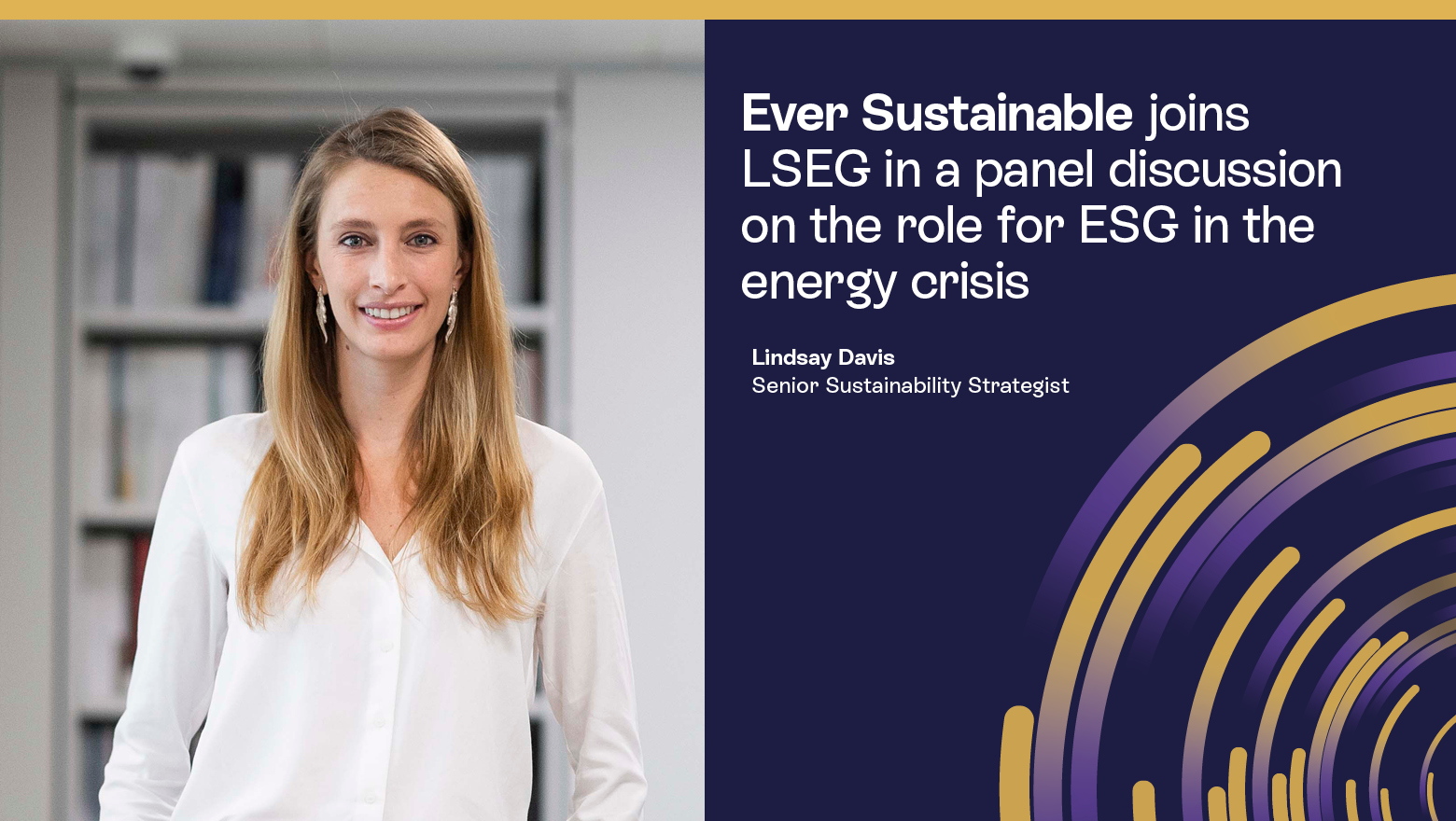
It’s about recognising that the energy crisis is a cost-of-living crisis, and at its core, it’s a people crisis that’s impacting the least well off the most.
Stay informed with regulations, insights & events by joining our mailer
On Wednesday 16 November 2022, our Senior Sustainability Strategist Lindsay Davis participated in a panel discussion to reflect on the role for ESG in the energy crisis.
The energy crisis is roiling markets and fanning inflationary pressures. The challenges facing governments, citizens and companies are significant, and the pathway forward is far from clear. The energy sector in particular faces difficult choices in navigating favourable price conditions that come at a very human cost. What does this mean for ESG and the climate agenda, and how should companies respond?
Engage with these topics and more by viewing a recording of the webinar below, or read on for a summary of key discussion points.
Key discussion points
1.
Policy responses to the energy crisis
Governments are responding to the energy crisis in a number of ways, including efficiency efforts to curb demand and securing alternative sources of supply. The scramble to prepare for winter in Europe has not been well-coordinated, and wealthier nations have played a role in driving up energy prices. This has contributed to the rise in the cost of living, and government efforts to subsidise the costs through energy price caps and rebates are not sustainable nor will they be sufficient. Keen to redirect public frustration, the energy sector has become a political lightening rod amid record-breaking profits. Consequentially, windfall policies have been enacted along with taxation policies directed at share buybacks.
2.
Dampening prospects for ESG?
Companies in energy-intensive industries may have immediately focused on business continuity challenges, but ultimately businesses are built around people. Similar to the response to the COVID-19 pandemic, ESG is increasingly being utilised as a tool to understand how the societal and environmental impacts of a crisis can lead to business challenges – and opportunities. Pushback and debate around the importance of ESG in the midst of crisis is welcome: there needs to be continuous and rigorous interrogation of what ESG means and how it should be applied to ensure that it’s generating genuine positive impacts.
3.
Implications for Net Zero
Although we have made progress, the world is not on track to achieve the goals of the Paris Agreement independently of the energy crisis. Decarbonising the energy sector will be key to combatting climate change and meeting those targets, and the war in Ukraine has fundamentally disrupted energy markets. The key question to ask is, has the crisis pushed countries back to fossil fuels, or will it catalyse a green revolution? It is a potentially pivotal moment for the fight against climate change, but the jury is out on how much the crisis will have an impact, and whether it will be positive or negative.
4.
Embracing a Just Transition
The energy crisis is a cost-of-living crisis that impacts the least well off the most. There’s never been more emphasis on the responsibility that businesses have to deliver on a purpose that creates value for all their stakeholders. The potential reputational fallout of mismanaging windfall profits or communications in times like these need to be understood and mitigated. Engaging with the principles of the Just Transition can help companies understand how to respond. The Just Transition describes a commitment to embedding inclusivity and fairness into the energy transition. Applying these ideals to your business can help companies achieve stronger stakeholder buy-in and enjoy greater stability as a result.
Video on Demand: The future of ESG in the current energy crisis
If you didn't manage to join the webinar, watch is back on the LSEG Spark platform via the link below:
Get in touch
We are currently working with companies in the energy sector and beyond to understand how to navigate the energy transition by building impact-oriented sustainability strategies and clear frameworks for communicating these to stakeholders.
To learn more about our thinking or how we can support you, get in touch with Lindsay and the team via email: team@eversustainable.co.uk

